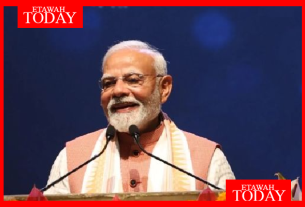Beijing Targets US Public Amid Soaring Trade War Tensions
As the US-China trade war intensifies, China is shifting its strategy—by speaking directly to the American people. In a bold move, the Chinese government has used social media to challenge former US President Donald Trump’s claims about tariffs and their economic impact.
A Message to Americans: “You’re Paying the Price”
Chinese Foreign Ministry spokesperson Mao Ning took to platform X (formerly Twitter), sharing a video aimed squarely at US consumers. The clip features a man portraying a US importer, explaining how Trump’s tariffs don’t burden foreign countries, but rather American businesses and, ultimately, American households.
“Tariffs don’t bring manufacturing back. They’re just a tax on Americans,” the post reads—challenging Trump’s long-standing argument that tariffs are paid by China.
Trump’s Steep Tariff Blitz
Under Trump’s recent economic push, tariffs on Chinese imports have soared—some reaching as high as 145%. The former president defended his stance, stating aboard Air Force One,
“We can set the tariff, and they can choose not to deal with us or they can choose to pay it.”
In retaliation, China has imposed tariffs up to 125% on US goods, further deepening the economic standoff between the world’s two largest economies. In 2024, the US and China traded more than $650 billion worth of goods, making any disruption significant on a global scale.
Tech Industry Sees Temporary Relief
Despite the heavy duties, some key exemptions were made—particularly to shield major US tech companies. Products like smartphones, laptops, semiconductors, and memory chips, primarily imported from China, were excluded from the latest tariff wave. This strategic move eases the burden on firms such as Apple and Dell, and includes electronics manufactured in countries like India and Taiwan.
Beijing’s New Strategy: Change the Narrative
By going beyond traditional diplomacy and directly addressing the American public, China aims to reshape the narrative on tariffs. Rather than engaging in political back-and-forth, the focus has shifted to economic impact—specifically on everyday Americans.
This digital diplomacy underscores Beijing’s belief that economic truth will sway public opinion more effectively than political rhetoric. The campaign signals a new front in the trade war—not on the factory floor or in diplomatic meetings, but on social media feeds.





